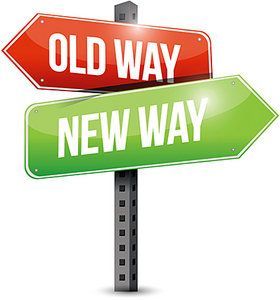It’s a new year and many chiropractors are evaluating what will enhance their respective practices, particularly as it relates to their bottom line. One of the most common questions I get is: “Do I need to be credentialed to bill insurance, and what are the best plans to join?” It’s a loaded question – but one every DC ponders. Whether you're already in-network or pondering whether to join, here's what you need to know.
From the Clubhouse to the Corporation: Doctors in Flux
One of my first patients was the wife of a medical doctor. It is difficult to express how nervous a 26-year-old neophyte chiropractor can be in a situation like this, and I was that chiropractor. When she left, I think I threw up in the bathroom. However, she improved quickly, and I obviously overreacted. In those days, I assumed that any MD would be an AMA member, be wary of chiropractors and certainly never refer a patient to one.
But fate can be puzzling. Over the years, I have had the opportunity to treat several medical doctors, and I now chuckle to myself at my early professional paranoia. We health care providers have more in common to unite us these days than not.
I used to think the MD was the "rock star" of health care, with all the privileges and opportunities I didn't have as a DC. But now "the moving finger has writ" and Big Corporate Health Care is trying to make us all equally miserable. What has interested me lately are the core changes in how medical doctors live, act and obtain patients. Exactly what do we have in common these days?
Medical Practice Then
The culture of American medical practice in the late 1950s and 1960s was male centric, heavy on "doctor as ultimate authority" and centered at the "clubhouse," namely the hospital. It is difficult to explain how important hospital privileges were in that era. Family doctors and specialists did "rounds" in the morning to check on the patients they had admitted. Then they would show up at their private offices in the afternoon, with the waiting room full of patients, all of whom were apparently scheduled for the same time, usually 1 p.m. or 2 p.m.

Lunch was at the hospital. This was where one got to know the other docs and nurses, and consequently, encourage referrals. I remember when I was a young boy, visiting a friend in the hospital. I walked past the physicians' cafeteria and saw the doctors smoking cigarettes, drinking coffee, and talking shop, just like some kind of social clubhouse.
These clubhouses (hospitals) had different cultures. Most were nonprofit. Some were Catholic, some Protestant; some for children or for women only. Doctors had the tendency to refer mostly to doctors associated with the same clubhouse.
Additionally, there could be other "club" factors, such as race and religion. For instance, in the bad old days in my city, Jewish doctors were quietly banned from obtaining privileges in several hospitals, so they had to start their own. The osteopaths had to do the same thing. Referring patients to "others" from the wrong turf could result in being shunned by your own gang.
A doctor might be in competition with another doctor in the neighborhood, but it was more tribal – your hospital tribe competing with others.
Fast Forwarding to Now
The purpose of all this history is to point out how things have changed for medical doctors. Most physicians in the U.S. now work for a paycheck. According to several published sources, about two-thirds of medical doctors work for a hospital system, large-group practice, health maintenance organization, government system, etc. Only a third of MDs / DOs are left wondering where their next patient is coming from – in other words, in private practice.
I'm not sure that a young MD working for a large HMO actually has to give a damn where patients come from these days. Salaried doctors work for institutions or corporations that have marketing departments and advertising budgets. The other one-third still have to work for those referrals. They still have to remember to send the fruit baskets or bottles of wine to the right people during the end-of-year holidays.
Today, physicians usually have large student loans, which encourages them to look for a job. I talked to an emergency-department doc who has been in practice for 20 years and still owes $120,000 on her student loan! She's working for a salary, so what can she do to pay her loan off faster? Take on a second job?
As far as I can tell, the typical physician today is someone in enormous debt, working for a paycheck, does not want to work beyond 8 hours a shift, and feels helpless to change the corporate environment in which they find themselves. Good luck maintaining a healthy attitude.
Challenges and Opportunities
Years ago, organized medical politics did not welcome us in the hospitals. MDs could retreat to their bricks-and-mortar clubhouse, but we chiropractors never had a clubhouse. We have been like wandering tribes of nomads; the hunters and gatherers of health care.
But today, it seems every hospital system either has, or wants, a complementary and alternative medicine department, and chiropractic is usually the centerpiece of that effort. As MDs gradually lose their "rock star" status, at least DCs are becoming valued "background singers" in the band.
The era of the physicians' clubhouse and lunch room has almost come to an end. Personal relationships in stimulating referrals are changing, since corporate marketing and Internet promotions dominate. Private practice is waning, and this may be what MDs and DCs finally will have in common.
Chiropractic needs more opportunities in corporate medicine. We want to be part of integrated health care. But the emerging employment opportunities for graduate chiropractors seem to be working for a franchise clinic with a name like The Jerk, or Chiro Wow, or some such place.
A new DC has to get started somewhere, but is this low-wage, low-esteem model the future for our profession? It makes me nervous to see this trend, but I admit that when I was starting out, I would have groveled for a salaried position.
There is hope. Most new DC graduates would appreciate a paycheck, and the corporate professional opportunities are only beginning. But for right now, private practice is still what we do. Go shake a thousand hands; in the long run, that still works.



